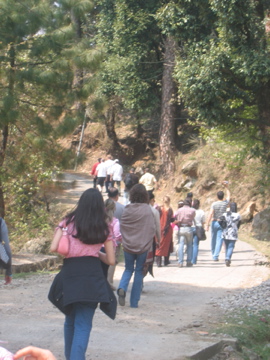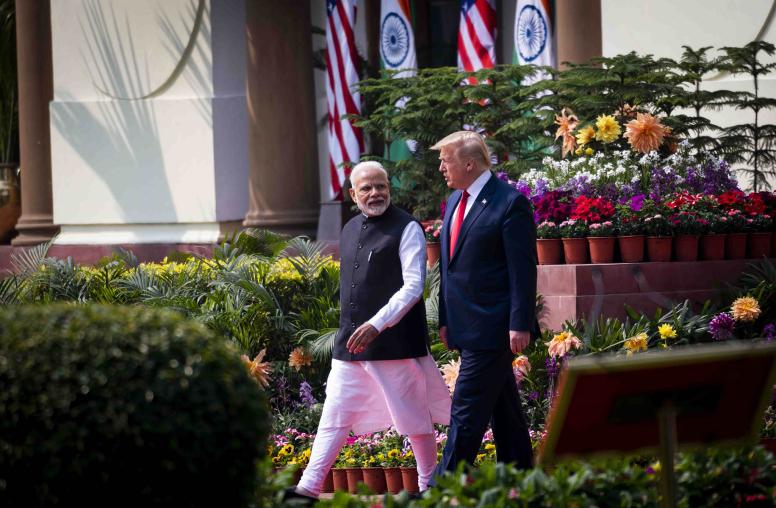In March 2008, USIP brought 40 young Iraqi leaders from Iraq to Dharamsala, India for five days of intense dialogue. The young leaders, from all professional backgrounds, also represented the diversity of Iraqi society. The dialogue experience was described as "transformative" as the leaders explored concepts of tolerance, diversity, democracy, citizenship and life in a war zone.
In March 2008, USIP brought 40 young Iraqi leaders from Iraq to Dharamsala, India for five days of intense dialogue. The young leaders, from all professional backgrounds, also represented the diversity of Iraqi society. The dialogue experience was described as "transformative" as the leaders explored concepts of tolerance, diversity, democracy, citizenship and life in a war zone.
This dialogue was the second collaboration between USIP’s ETC/I and GPIW (Global Peace Initiative of Women), a New York-based foundation working on peace with women, youth, and religious leaders.
The value of holding the dialogue in Dharamsala, home of the Dalai Lama, cannot be overstated. The day of arrival, coincidentally International Women's Day, the Iraqis were greeted with Tibetan women marching for peace. Throughout the week, Tibetans demonstrated against Chinese action vis-à-vis Tibet. The peaceful nature of these protests struck the Iraqis, as they absorbed the culture of non-violence and learned of Ghandi's non-violent opposition to British occupation.
International Women's Day, the Iraqis were greeted with Tibetan women marching for peace. Throughout the week, Tibetans demonstrated against Chinese action vis-à-vis Tibet. The peaceful nature of these protests struck the Iraqis, as they absorbed the culture of non-violence and learned of Ghandi's non-violent opposition to British occupation.
GPIW’s methodology of bringing young leaders from other countries exposed the Iraqis to examples of youth who successfully navigated violence in their own cultures, while USIP’s Senior Program Officers Jacki Wilson, Maria Jessop, and Noor Kirdar with Program Specialist Victoria McColm, led dialogue sessions and topical working groups.
By the end of the week, USIP and GPIW returned 40 young leaders back to Iraq motivated to work for peace in their own communities, energized by the examples from international youth, and connected to each other by the shared experiences in Dharamsala.



